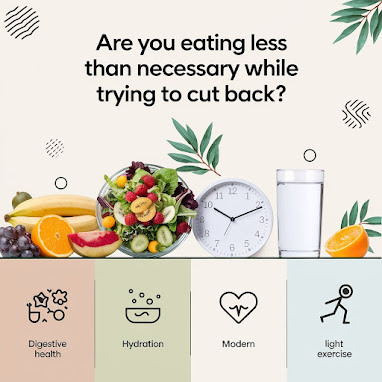If you've done even a little research on dieting or weight control, you probably know that many experts today see fasting as an effect...
If you've done even a little research on dieting or weight control, you probably know that many experts today see fasting as an effective method for weight loss. With a wide variety of delicious food now easily available at our fingertips, we often end up consuming more calories than needed. And if we’re not balancing it with enough physical activity, that extra calorie intake turns into body fat. So, controlling your food intake is important for managing weight. Occasional fasting can also help—it can make the body feel lighter and help keep your weight in check.
At this stage, there’s no harm. The body doesn’t break down from missing a meal now and then. In fact, fasting is a common practice in many religions—Hinduism, Islam, Christianity, Jainism—where the body gets a chance to rest and reset internally. These days, many people follow intermittent fasting, where they avoid food for 12–14 hours and eat freely during the remaining hours. Some people only eat fruits while fasting, and some avoid even water. But the question is—which of these methods actually work?
The first rule is to listen to your body. If fasting gives you gas or acidity, that’s a sign it’s not suitable for you. Going too long without water can also dehydrate you. So sip water in small amounts if needed. When you break your fast, avoid heavy, oily, or spicy foods. Start with fruits, fruit juice, a light vegetarian soup, or lentil water. After a while, you can have a proper meal—but choose something light and easy to digest, like rice with curry or lentils.
Those who follow intermittent fasting should also keep these points in mind. It’s best to finish your dinner by 8 p.m. and avoid any solid food before 8 or 8:30 a.m. the next morning. Drinking water during the fasting period is fine.
Always remember—your body’s well-being depends on what you eat before and after a fast. So opt for light, easily digestible foods, fruits, and cottage cheese. Just eating less or fasting alone won’t help you lose weight. You also need to follow a proper routine that includes exercise, enough rest, and plenty of water.
Who Should Avoid Fasting Entirely:
-
If you have diabetes or high blood pressure, always consult a doctor before starting any kind of fasting.
-
If you suffer from gastric issues, ulcers, or acid reflux, check with your physician before attempting a fast.
-
If fasting causes your skin or hair health to decline, stop or adjust your routine. Make sure your body stays hydrated.
-
If you feel extreme weakness or nausea after fasting, it’s a clear sign that your body isn't tolerating it well.






No comments